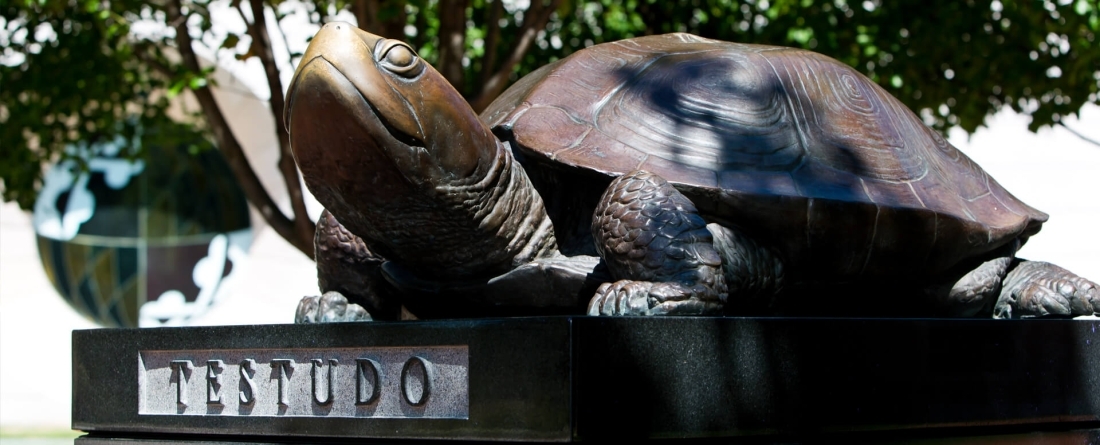
Five Impressive Groups Compete for $5,000 to Advance Their Tech Innovations for Social Good
Five finalists, from dozens of applications across the globe, have been selected for the Do Good Robotics Start-Up Competition as part of the inaugural Do Good Robotics Symposium (DGRS). The 2019 Do Good Robotics Symposium, hosted by the Maryland Robotics Center and the Do Good Institute, will bring together researchers, practitioners, and groups engaged in multidisciplinary and cross-cutting research and deployment of technologies for the benefit of our society and planet.
The Start-Up Competition aims to foster the entrepreneurial spirit and provide a platform to encourage researchers and practitioners to commercialize their ideas and prototypes that squarely place the benefit of society and the planet at its core. The Start-up Competition is intended to inspire, educate, and enable anyone who has an idea that would benefit humanity across the globe through AI technology to further develop and implement their solution.
Twenty applications from diverse issue areas ranging from intelligent water transportation to e-learning gamification technology were submitted from researchers and practitioners in several countries and from across the United States. Five entries were selected as finalists.
The 2019 Do Good Robotics Startup Competition Finalists are:
- Hear, here! (Led by Katherine August, Stevens Institute of Technology): Globally, people with hearing loss and deafness experience disparate treatment and a limited ability to participate in many settings including courts, healthcare, schools, workplaces, etc. Accommodation technology solutions are expensive, developed in silos, complicated with proprietary interfaces, not interoperable with mainstream communication technologies, and do not overcome hearing-related obstacles. Costs may be onerous and many decide not to provide accommodation. Hear, here! focuses on low-cost open source Sustainable AI Hearing Accessibility solutions using mainstream communications technologies including WiFi, mobile phones, and apps, with distribution bridging the technology gap even for those with limited resources.
- High Efficiency Water Segregator (HEWS) (Led by James Barbour): Commercial fish farms reduce the demand for ocean-caught fish. Unfortunately, cleaning costs and occasional disease outbreak limit the profitability and cleanliness of existing farms. These industry deficiencies primarily occur because filtered water is mixed with dirty water within tanks, never allowing any given tank to be fully cleaned. Our proposal is to develop an autonomous, robotic device to segregate water into filtered and unfiltered sections to significantly improve system cleanliness while reducing overall cleaning costs.
- Robotic Coastal Restoration (Led by Nathan Melenbrink, Harvard University): Robotic Coastal Restoration will create teams of robots that help protect and repair vulnerable or damaged land, starting with robots that build sand fences and plant dune grass to help protect coasts. Simple measures like these are proven to have a huge effect in building dunes and restoring eroded beaches. The limitations have been a shortage of available labor, and the difficulty (and damaging effect) of using heavy machinery to help. Environmental restoration with smaller, lighter autonomous robots will allow large-scale impact, first on coastlines, and later extending to other forms of land degradation, the global costs of which are estimated at $10 trillion per year.
- Sustainable AI (Led by Björn Lütjens, Massachusetts Institute of Technology): An increasing number of companies invest in carbon offsetting solutions to become CO2-neutral. One of the cheapest carbon offsetting solutions is active reforestation. Reforestation projects, however, historically display an issue of trust, caused by long-term ex-ante billing for potentially never realized CO2 offsets, which drives companies to invest in transparent, but expensive air carbon capture facilities. Reforestation companies could conduct accurate forest inventories (tree count, species, biomass, etc.) to transparently estimate the annual amount of tree-sequestered carbon, but current means of creating rain-forest inventories are too inaccurate and/or expensive.
- Walk with Me (Led by Danyal Malik, University of Maryland): In the developing world, amputees are not only burdened by an inability to walk, but they are also stigmatized within their own communities as a result of their disabilities. There are 40 million amputees in the developing world and only 5 percent of them have access to any form of prosthetic. Walk With Me Prosthetics is a nonprofit start-up that works to provide low-cost prosthetic legs to amputees in developing countries so that they can live better and happier lives.
On October 3, finalists will each pitch their ideas and prototypes to a panel of judges and an audience filled with like-minded peers, top executives and investors from the DC-Maryland-Virginia area. Following finalists’ pitches, there will be a showcase where they can speak with judges and guests further about their innovations.
A panel of judges will determine the grand prize winner who will receive $4,000 to advance their idea or prototype. All attendees will have the opportunity to cast their vote for their favorite finalist with “Do Good Dollars” and the finalist with the most votes will receive an audience-choice prize of $1,000. Winners of the Start-Up Competition will also get access to Do Good Accelerator programming, including coaching support to scale up their ventures. The $5,000 prizes are sponsored by the Maryland Robotics Center.
Judges for the Start-Up Competition include:
- Maurice Boissiere, Chief Customer Officer, DataTribe
- Bridgette Gray, Executive Vice President, Per Scholas
- Don Woodbury, Director of Innovation and Partnerships, University of Maryland
For more information about the Start-Up Competition visit dgrs.umd.edu/start-up-competition.
